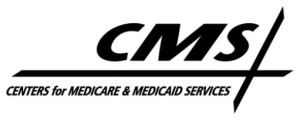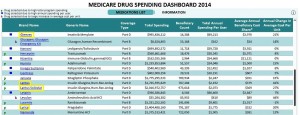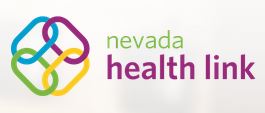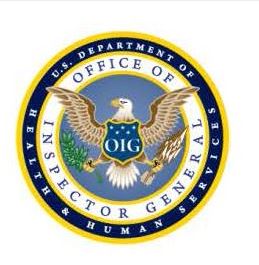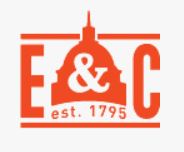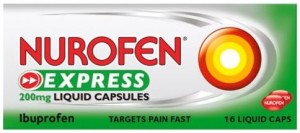- CMS demands scrutiny of opioids, antipsychotics in Medicaid (modernhealthcare.com)2016 Updates to the Child and Adult Core Health Care Quality Measurement Sets (medicaid.gov)
CMS plans to more closely track the use of opioids by adults and antipsychotics among children and adolescents with new quality measures for Medicaid and the Children's Health Insurance Program...The agency issued a notice this month outlining the new measures, which come amid a national epidemic of opioid abuse and a rising unease with the high rates of antipsychotic medications prescribed to minors for off-label uses...CMS will require Medicaid programs...to track the use of opioids at high dosages acquired from four or more providers and pharmacies by beneficiaries who don't have cancer...The measure is intended to indicate inappropriate prescribing or fragmented care...American Pharmacists Association said the new Medicaid measure could help identify patterns of opioid misuse...The CHIP measure, meanwhile, would track the percentage of children and adolescents who are on two or more antipsychotic medications at the same time...an analysis by HHS' Office of Inspector General found that 92% of antipsychotics taken by Medicaid children in five states were prescribed for off-label uses...The use of multiple antipsychotic medications “is seldom justified and is an appropriate focus for a quality measure,”...children on Medicaid are prescribed antipsychotics at much higher rates than privately insured children.
- Big Pharma’s steady double-digit price hikes cost Medicare billions (fiercepharma.com)Medicare drug costs rose sharply in 2014 (statnews.com)Medicare Drug Spending Dashboard 2014 (cms.gov)The CMS Blog: Medicare Drug Spending Dashboard (blog.cms.gov)
Sanofi, Pfizer, Novartis and peers ratchet up prices on blockbuster meds to reap big sales gains…a new report from the Center for Medicare and Medicaid Services puts some numbers to that claim. They won't resolve the debate over which price increases are "justified," but they do highlight some commonly used meds whose sales growth (grew)--and Medicare spending--depends more on rising prices than on rising demand.
- Vimovo...price hike at 543% for 2014... boost helped send spending on the drug up past $38 million from just over $7 million in 2013…patients using the drug only grew by 8%.
- Targretin...unit cost rose by 123% last year, to $145.65...CMS shelled out $73.5 million, more than double its 2013 spending…increase in patients of just 12%.
- CMS laid out $1.725 billion for Lantus last year, a $400 million increase year-over-year despite a 6% decline in patient count.
- CMS spent another $2.02 billion for Lantus Solostar, an increase of almost $700 million, or about 50% year-over-year...patient growth amounted to 13%.
- Gleevec sent CMS' unit costs up by 21% last year, to $179.93...that pushed spending per user to $69,212. The number of patients using the drug ticked upward by 5%...spending on the drug grew by 28%, to almost $1 billion.
- Lyrica...up in price...about 20%...to $4.28 per pill. Medicare spent $1.4 billion on the drug in 2014, up from just over $1 billion in 2013...patients grew by 7%.
When Sanofi, Pfizer and Novartis were raising their prices...they were fighting to fill patent-cliff sales gaps and scrambling to refill their pipelines of prospective new drugs. They were also spending billions on R&D--and on stock buybacks, dividends and other shareholder-friendly moves. Horizon and Valeant, by contrast, aren't big R&D spenders; Valeant, at least, has defended its price hikes as necessary to deliver returns to shareholders.
- Health insurance exchange enrollment strong ahead of deadline (reviewjournal.com)
More than 72,600 Nevadans signed up for a Nevada Health Link plan between Nov. 1 and Saturday, according to the U.S. Department of Health and Human Services....That's more than double the 35,000 enrollees who had selected a plan by this time in 2014...Consumers had to have a plan in place by Dec. 17 to qualify for coverage that would begin on Jan. 1, but they have until Jan. 31 to buy insurance and avoid a federal tax for lacking coverage. The tax in 2016 will equal 2.5 percent of household income, or $695 per adult and $347.50 per child up to a household maximum of $2,085 — whichever is higher...Nearly 70 percent of Nevada's exchange enrollees can find plans for $75 a month or less after tax credits...
- Prices for many generic drugs rising faster than inflation (modernhealthcare.com)
Prices rose faster than inflation for 22% of top generic drugs reviewed between 2005 and 2014, according to a report released Thursday by HHS' Office of Inspector General....Had those generic drugs been subject to the same requirement that branded drugs face—where manufacturers pay additional rebates to Medicaid when the price of a drug increases faster than inflation—Medicaid would have pulled in $1.4 billion in rebates for the top 200 generic drugs, according to the report...The OIG produced the report in response to a request from Congress to examine recent increases in generic drug prices and the effects of those prices on Medicaid and Medicare drug spending...the OIG didn't make any recommendations, noting that that the two-year budget deal recently passed by Congress would extend the rebates to generics starting in 2017. In a previous, similar report, OIG had recommended CMS consider seeking legislative authority to broaden the rebate program.
- FDA still seems reluctant to regulate mobile health apps (medcitynews.com)
Remember when the Food and Drug Administration was going to regulate mobile health apps? The year was 2013...There was even a bill from the congressman representing Silicon Valley that aimed to tame the “Wild West” of mobile and wireless health. The House Energy and Commerce Committee even held three...days of hearings...Rep. Mike Burgess asking then-national health IT coordinator Dr. Farzad Mostashari to magically create interoperability...Now, it sounds like the FDA might almost be ready to throw its hands up and walk away...the agency circulated a draft guidance that really didn’t say much...The 2013 final version clarified policy a bit, stating that the FDA generally would focus only on mobile apps that serve as medical devices, and mostly stay away from regulating consumer technology...Earlier this year, an FDA specialist in digital health told Bloomberg that the agency would be “almost hands-off” when it comes to consumer wellness and fitness gadgets...
- Study: Florida’s Crackdown On ‘Pill Mills’ Is Working (forbes.com)
State officials have been cracking down on Florida’s "pill mills" over the past five year to prevent pain clinics from dispensing large quantities of prescription opioids to residents without following proper protocol–and their efforts seem to be paying off...a new study revealed that approximately 1,029 fewer people in Florida lost their lives to prescription opioid-related overdoses over a 34-month period than would have had the Sunshine State not targeted pill mills beginning in 2010...State officials passed new laws in 2010 and 2011 to curb opioid abuse, misuse and overdose in the state by establishing greater oversight over pain clinics. "These laws prohibited on-site dispensing of most prescription narcotics, prohibited advertising and increased criminal penalties for doctors and clinic owners involved drug diversion,"..."In addition, state and local law enforcement collaborated with the DEA to enforce these new laws, arresting pill mill owners, physicians and other staff, and seizing assets."...The study’s authors believe Floridians are less likely to become addicted to heroin because people are less likely to abuse prescription opioids, mainly due to the fact that they aren’t readily available in the state.
- Lawmakers ask GAO to review FDA oversight of Asian drug plants (statnews.com)Bipartisan Committee Leaders Enlist Government Watchdog On FDA’s Foreign Inspection Program (energycommerce.house.gov)
Concerned about the quality of the pharmaceutical supply chain, several congressional lawmakers want the US Government Accountability Office to review Food and Drug Administration oversight of foreign manufacturing plants...In a letter...members of the House Energy and Commerce Committee asked the GAO to assess the progress the FDA has made inspecting foreign facilities since the agency undertook a new "risk-based" approach in 2010. They noted the United States imports more than $52 billion in medicines each year, but that "many of these products come from countries with less sophisticated regulatory systems."...The lawmakers went on to note that there’s a "history" of counterfeiting, adulteration, substandard manufacturing, and data falsification over the past 20 years in China and India, specifically. As a result, they suggest there may be "inadequate oversight" and an "unequal playing field" compared with US drug makers that are subject to "more frequent and rigorous inspections."...The FDA has begun working with the Indian government to bolster domestic oversight...India’s drug makers have bristled at the attention paid by the FDA to ongoing shortcomings, which have prompted the agency to issue a steady stream of import alerts that ban products from being shipped to the United States.
- Headaches for Reckitt over charges of misleading claims for OTC painkillers (fiercepharmamarketing.com)
Reckitt Benckiser executives may need some of the company's own pain meds this week. First in Australia and now in the U.K., the drugmaker is being taken to task over misleading claims for its painkiller Nurofen...Australia, a judge ordered four "different" kinds of Nurofen pulled from store shelves. While each product has a different name targeting a different pain--Nurofen Back Pain, Nurofen Period Pain, Nurofen Migraine Pain and Nurofen Tension Headache--each had the exact same active ingredient and at the same strength, 342 mg of ibuprofen lysine...Meanwhile, in the U.K., Reckitt is under investigation for TV advertising for its Nurofen Express, charged with making inaccurate claims that "the product directly targets muscles in the head," and that it works more quickly than standard ibuprofen...This is not the first time Reckitt has been charged with making misleading Nurofen claims; in 2012, the Australian government ordered one of its TV ads withdrawn. The ad included the "misleading" claim that Nurofen "goes straight to the pain" together with "imagery of the medicine ascending from the neck to the head," according to the filed complaint.
- DEA eases requirements for natural cannabis-derived drug research (reuters.com)
Drug Enforcement Administration...relaxed some restrictions on research evaluating cannabidiol, an extract of the marijuana plant, for medicinal use...The modifications will ease some requirements imposed by the Controlled Substances Act on possession of cannabidiol (CBD) for a specific Food and Drug Administration approved research protocol...researchers who expanded the scope of their studies and required more CBD than initially approved had to request, in writing... the changes...a previously registered CBD clinical researcher who is granted a waiver can readily modify the protocol and continue research seamlessly. (waiver effectively removes a step from the approval process)...A handful of companies are developing cannabis-derived drugs. Pioneering the effort is Britain's GW Pharmaceuticals, which is slated next year to deliver the results of four late-stage U.S. studies of its botanical pot-based epilepsy treatment...INSYS Therapeutics Inc and Zynerba Pharmaceuticals Inc are working on much earlier stages of development with synthetic cannabis for a number of disorders.
- U.S. FDA warns Sun Pharma over standards at Halol plant (reuters.com)
India's largest drugmaker Sun Pharmaceutical Industries Ltd has been warned by U.S. health regulators for violating manufacturing standards at its Halol plant in India, even as it has been working on fixing issues at the plant for over a year...Food and Drug Administration's "warning letter" to Sun Pharma indicates the agency is dissatisfied with the remedial measures the company has implemented since last September, when the FDA first notified the company of its concerns after an inspection...That inspection report highlighted nearly two dozen issues the FDA staff found, including problems with aseptic practices and water leaks in the ceiling of the manufacturing area...the agency could ban imports from the plant if the problems are not resolved...The Halol plant makes up about 15 percent of Sun Pharma's sales in its largest market, the United States.

